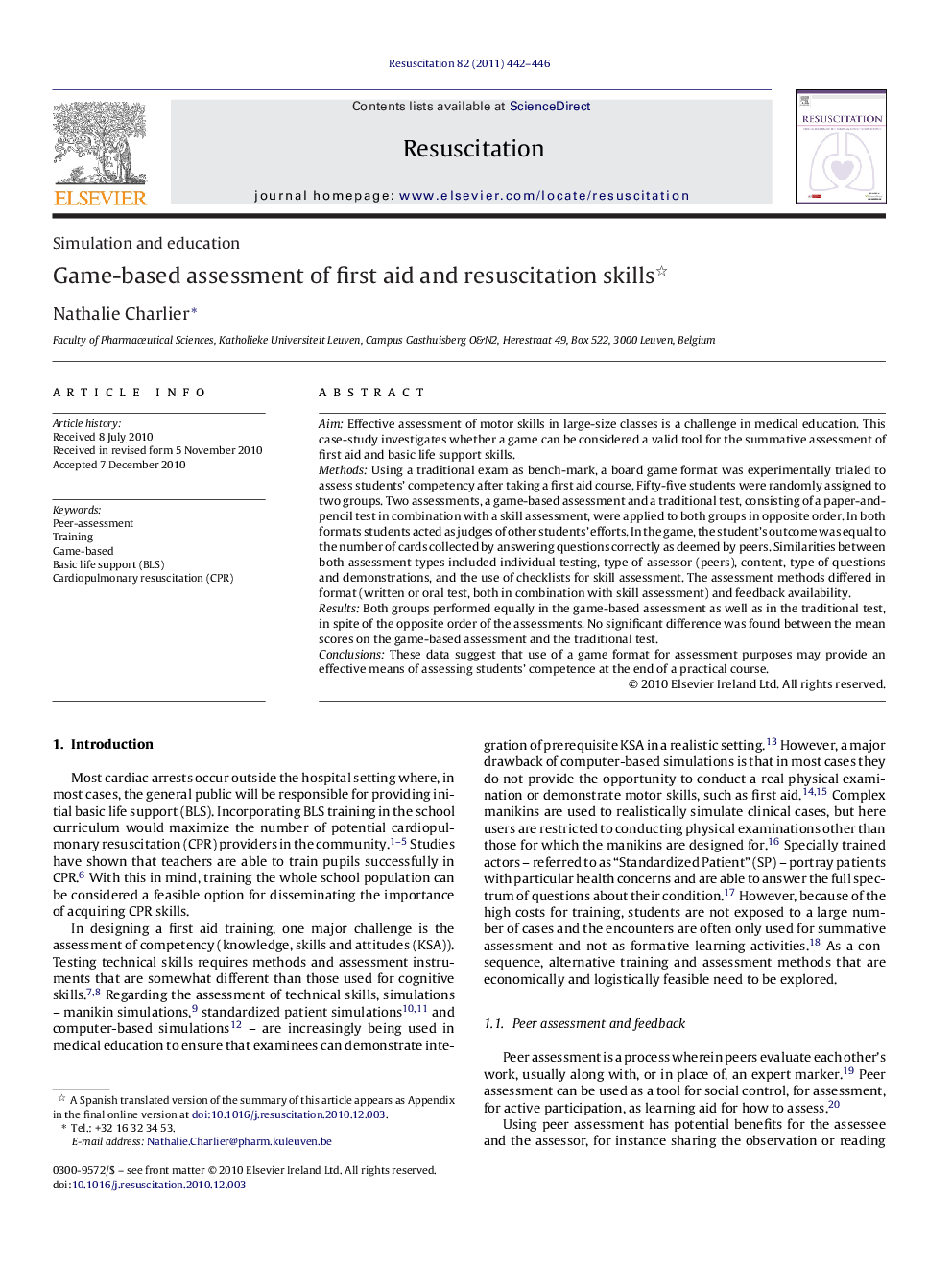| Article ID | Journal | Published Year | Pages | File Type |
|---|---|---|---|---|
| 3008879 | Resuscitation | 2011 | 5 Pages |
AimEffective assessment of motor skills in large-size classes is a challenge in medical education. This case-study investigates whether a game can be considered a valid tool for the summative assessment of first aid and basic life support skills.MethodsUsing a traditional exam as bench-mark, a board game format was experimentally trialed to assess students’ competency after taking a first aid course. Fifty-five students were randomly assigned to two groups. Two assessments, a game-based assessment and a traditional test, consisting of a paper-and-pencil test in combination with a skill assessment, were applied to both groups in opposite order. In both formats students acted as judges of other students’ efforts. In the game, the student's outcome was equal to the number of cards collected by answering questions correctly as deemed by peers. Similarities between both assessment types included individual testing, type of assessor (peers), content, type of questions and demonstrations, and the use of checklists for skill assessment. The assessment methods differed in format (written or oral test, both in combination with skill assessment) and feedback availability.ResultsBoth groups performed equally in the game-based assessment as well as in the traditional test, in spite of the opposite order of the assessments. No significant difference was found between the mean scores on the game-based assessment and the traditional test.ConclusionsThese data suggest that use of a game format for assessment purposes may provide an effective means of assessing students’ competence at the end of a practical course.
